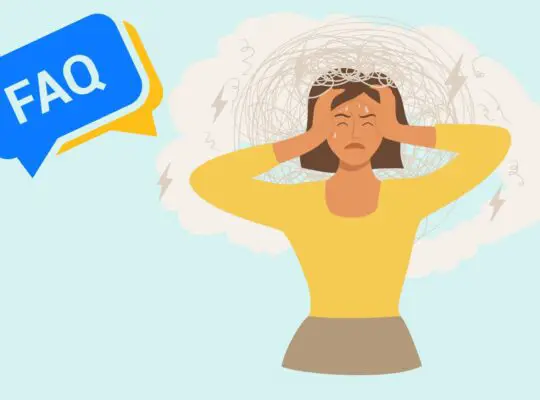As we age, we start to notice signs of cognitive decline. It’s natural for your mind to slow, and for word recall to take longer, and that’s not something to panic about unless it’s a frequent occurrence and other people are worried.
It’s a normal part of the aging process and though you may suffer some mental decline, that doesn’t mean you can’t take steps to slow it down and support your cognitive function through the aging years. We have 10 tips to help you support yours.
1. Mental Stimulation
The more active your brain is, the better your cognitive function will be because it can stimulate new connections. What types of activities are mentally stimulating? Puzzles are a great choice, whether you love complex math problems or prefer word puzzles. You can read widely, enroll in a language course, or experiment with activities like drawing, sketching, or other crafts that require manual dexterity. Even taking up golf or gardening can help.
It’s also worth making sure you get plenty of sleep and failing that, rest often. Your brain recovers while you sleep and that’s key to maintaining cognitive function.
2. Exercise
Exercise is good for your body and it’s great for your mind! Not only will it encourage new nerve cells, but it will also increase connections between brain cells. What does that mean? It means exercise can make your brain more efficient and that is good news for you facing the aging process. Any type of physical activity is sufficient, you can pick up activities that match your mobility.
3. Head Protection
Head injuries at any age present a serious risk to your cognitive function, but it grows more dangerous as you age. So, if you plan to take up biking or any other type of similar activity, ensure you protect your head with a reliable helmet.
4. Build Your Network
The stronger your social ties, the lower the risk of dementia. Those social ties can also extend your lifespan and lead to lower blood pressure. So, friends aren’t just good for your soul, they’re good for your body and brain, too! If strong social ties can help you battle dementia, it’s certain to support your cognitive function through aging. Reach out to a friend today and make a coffee date.
5. Eat Well
Nutrition is just as important to your mind as it is to your body, and eating a well-balanced diet is an easy choice to make to support cognitive function. Strike the balance with lean proteins, healthy fats, whole grains, and plenty of fruits and vegetables. Things like nuts, olive oil, and fish like sardines, anchovies, and mackerel have healthy fats to support cognitive function.
6. Control your Blood Pressure
One of the benefits of eating well is the influence it has on your blood pressure and controlling that is key to maintaining cognitive function. The higher your blood pressure, the greater the risk of cognitive decline. If blood pressure is a problem, you can exercise more often, manage stress, and eat well.
7. Monitor Your Blood Sugar
Monitor your blood sugar because diabetes can be a risk factor for dementia, and if you do have a blood sugar problem, you need medication to control it properly.
8. Maintain Your Cholesterol
LDL is the bad cholesterol and if you have high LDL cholesterol it comes with a higher risk of developing dementia. If you continue with this struggle, medication will be necessary to control your cholesterol levels, but you can take your own steps by eating well, limiting your alcohol intake, and giving up tobacco.
9. Quit Smoking & Limit Your Alcohol Intake
If you haven’t already – now is the time to quit smoking. You might think it’s the best way to relieve stress and relax, but smoking actually contributes to higher stress levels. You get temporary relief from your stress while smoking, but when your body starts to crave another hit of nicotine, that stress comes back bigger and more aggressive. So, quitting is the best choice for you and your cognitive function and that’s without getting into the risk of cancer and lung disease.
Alcohol can interrupt the way your brain communicates, which can have a serious impact on your cognitive function. While the best choice is to abstain entirely, you can limit yourself to a drink a day.
10. Regulate Your Emotions
If you suffer from anxiety or have experienced depression, sleep issues, or fatigue, then you already run the risk of cognitive function issues. You don’t need to be the picture of perfect mental health, but actively working on managing anxiety and stress can relieve the symptoms of depression, which should positively contribute to sleep issues and fatigue, unless they’re related to an underlying health problem. By regulating your emotions, you relieve the stress and anxiety that can contribute to cognitive decline.
Final Thoughts
Aging doesn’t have to mean slowing down mentally—in fact, with the right habits and mindset, your brain can continue to thrive for years to come. By staying curious, nourishing your body, and engaging in activities that challenge and stimulate your mind, you can support cognitive function and live each day with mental clarity and confidence. Remember: a sharp mind is one of your greatest lifelong assets—so treat it with care.







